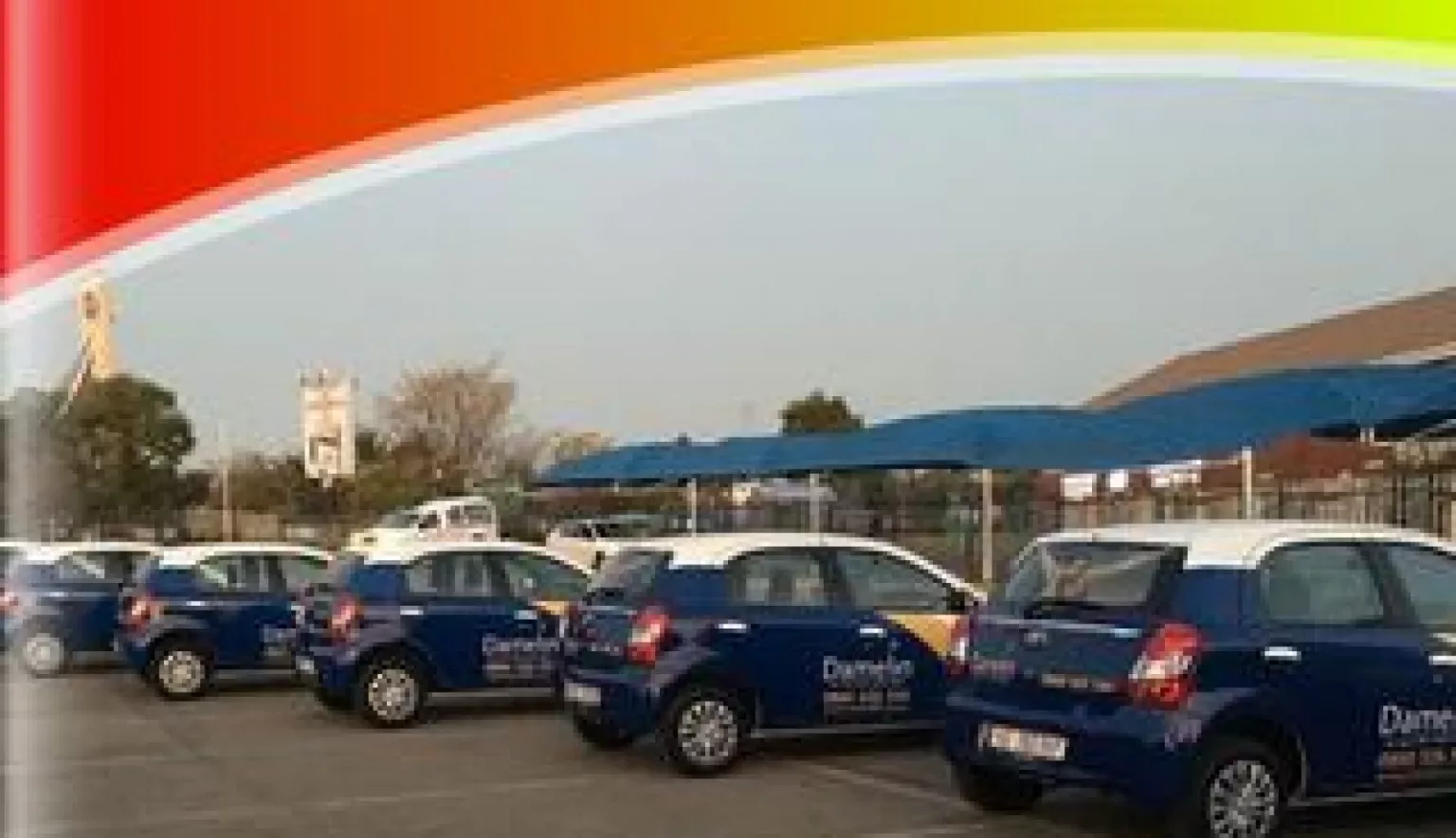KHULA Fleet has gradually built up its reputation amongst the industry heavyweights, standing on a solid foundation of self-empowerment and a new-age philosophy.
EMBRACING PROGRESSION
KHULA Fleet is a Company built upon passion and taking risks in the pursuit of innovation, with Chief Executive Officer Darren Pillay at the helm, it is going from strength to strength in its fifth year of operation.
Having worked in the fleet industry for over 20 years, beginning his journey at Viamax Fleet, which at the time was an in house fleet service provider to Transnet – the state owned entity that manages the entire logistics stream of transport in South Africa.
“I began my journey in the industry as a Fleet Administrator in 1996 and by the time the business was sold in 2007, I had progressed to Chief Operating Officer,” explains Darren Pillay. “In a very short space of time I had worked my way up and was the only executive that was retained when the sale took place.
“I moved around the business into the capacity of Sales and Marketing Director – which I stayed in for about 18 months – before moving back into the role of Operations Director, where I remained until I left the organisation in 2012.”
Considering the many years of service with Transnet, Pillay took a huge gamble when deciding to resign from his position as Director of the business, giving up everything he had built there to start completely from scratch in a new company.
“Putting my entire life on the line was of course an incredible risk,” continues Pillay. “At that point I had built a life of relative comfort and stability in terms of mine and my family’s future, however, I put that to one side and started KHULA Fleet.”
With any start-up company the work is completely from scratch and for Pillay, moving from a business with a vast amount of resources available to becoming employee number one requires a huge change in mind-set.
“In March 2012 I started KHULA Fleet for Passenger and light commercial vehicles nationally and by April we had tendered an interim contract with Transnet,” affirms Pillay. “The contract was awarded to us in October that year and with that security for the Company, we spent the first six months creating a brand and the supporting legal framework that would enable us to be presented in a professional capacity.
“We took the time to develop a solid foundation that would stand us in good stead against our competitors at the time.”
DEFINING IN THE INDUSTRY
One of the biggest challenges facing start-up companies in South Africa is that the fact the industry is dominated by big businesses – who have a vast array of resources and far more experience in terms of the volume of expertise – and smaller companies will initially be on the back foot on that front.
However there are ways to differentiate in aspects other than product – which will be exactly the same in this industry no matter what the company – a particularly prominent way to achieve this is through the value added service that companies such as KHULA Fleet can provide.
“The challenge that we face is getting people to subscribe to this philosophy, as it does not follow the traditional route that companies in our industry conform to,” adds Pillay. “It is human nature to want stability and comfort within an environment that is constant, we have set ourselves apart from this and are constantly evolving within the industry to remain innovative.”
In a short space of time, the Company has evolved from a micro enterprise entity with a turnover of five million rand, to a generic company with a turn over of 50 million rand.
Pillay continues: “Our mind-set remains that of an entrepreneurial team, however, we are now a big organisation that is competing with large multinationals and subsequently we have to constantly look to evolve and improve ourselves through services rendered and the technology we use.
“With innovation you have to involve technology, that is the key to unlocking value when you need to be as efficient as possible.”
PEOPLE WITHIN THE COMPANY
Perhaps the number one challenge for start-up companies is finding the right people to embrace progression, something that is not just a South African phenomenon, but a global issue.
“When I first started the Company, I noted in my business plan that the biggest challenge I would face in terms of success would be finding the right people,” describes Pillay. “I knew what I was capable of, the issue would be in getting other people to subscribe to the same levels of standards, work ethic and certain philosophies would never be easy.
“The culture that we have tried to embrace and instil within our staff is one of self-empowerment, while also creating a level of succession; I have made known to my people that my intention is to grow the business beyond and vacate my seat in order to put someone else there.”
The Company mind set is still very much that of a start-up, in the fact that it is constantly striving for improvement; in order to achieve that and ensure that every member of staff has a broad understanding of the industry and a wider skill set, each member of staff is moved around the various departments of the Company.
“We like to call it organised chaos and through it we are staying true to what we are trying to achieve,” states Pillay. “However, the difficulty we find within this is getting people to subscribe to this way of thinking and working, as once again, people naturally enjoy being in their comfort zone.”
SCARCE COMMODITY OF SKILLS
It is a particularly prominent issue in South Africa at present that skills in this industry are a scare commodity; therefore KHULA Fleet has found it important to look at this problem from another perspective.
“We realised that we need to increase the talent pool in this country and the industry,” explains Pillay. “We realised that the only way to achieve that was through bringing more people into the industry, subsequently we started an internship programme.
“This year is our third round of the internship programme, where we select up to six graduates with a minimum of an undergraduate degree and put them through an eight month programme, positioning them in different areas depending on their qualifications.”
Not all of these graduates will become a permanent fixture in the Company, however it does provide them with practical knowledge of what it means to work in the industry.
“The majority of these graduates haven’t left education before coming to us and subsequently have relatively little working experience,” adds Pillay. “We enable them to walk out of here with that knowledge and the experience needed to gain permanent employment either with us or elsewhere.”
It is efforts like these that set KHULA Fleet apart from the rest of the businesses in this industry and will help to drive it towards continued success in the future.
“It is my hope for the future that the Company will be 100 percent empowered,” concludes Pillay. “Statistically we should have failed in year two, so I hope that we will continue to successfully survive the various hurdles of a start-up Company; we have set ourselves up incredibly well and the fact that we still trade and operate in the sector bodes incredibly well for the coming years.”































